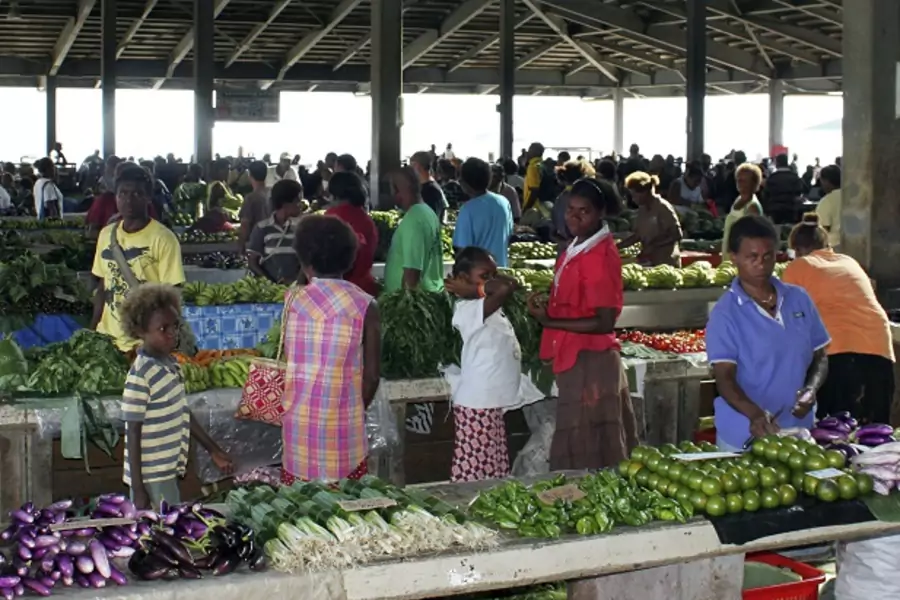New Initiative Targets Women in the Solomon Islands’ Informal Economy

This post is co-authored by Becky Allen, a research associate in the Women and Foreign Policy program at the Council on Foreign Relations.
Last month, the International Finance Corporation (IFC) and the Australian government launched a $2.3 million initiative to increase women’s economic participation in the Solomon Islands. The plan was announced at the eighth Australia Solomon Islands Business Forum in Brisbane on July 22, at which Australian Minister for International Development and the Pacific Concetta Fierravanti-Wells stated, "The evidence is clear, investing in women is a good thing to do, both morally and economically."
More on:
The new program will work with businesses over four years to provide tools to "recruit, retain, and promote women" throughout companies in the Solomon Islands – from the executive level to non-traditional roles. In addition to removing barriers to entry for women’s labor force participation, the IFC will work with businesses to implement gender-sensitive policies to safeguards women’s rights and needs in the workplace.
The goal of the new program is to raise the number of women in the formal economy in the Solomon Islands, advancing women’s economic empowerment and growing GDP. Currently, approximately 60 percent of women who live in the Solomon Islands are employed, compared with 72 percent of men. Of those women in the workforce, 76 percent are in subsistence work. The ratio of men and women in the labor force in the Solomon Islands has remained relatively stagnant over the past decade, largely a product of gender inequalities in education, training, household responsibilities, and cultural attitudes about the role of women.
Reinforcing the well-documented link between women’s labor force participation and the potential for growth in global GDP, the initiative is also expected to boost the economy in the Solomon Islands. According to the IFC’s Operations Officer for Gender, Sarah Twigg, "only 9 percent of women hold a formal wage paying job in the Solomon Islands. There is significant evidence that closing the gender gap in employment could increase productivity in the region by 13 – 25 percent."
One factor that could significantly impact GDP is the restructuring of the division of labor in the country’s unpaid care economy. According to the Asian Development Bank, "women spend twice as much time on household work and four times more on childcare" – neither of which is accounted for in the calculation of GDP. Likewise, women’s overrepresentation in subsistence work inhibits their ability to contribute significantly to GDP.
The World Bank also points to high levels of violence against women as an issue inhibiting women’s labor force participation in the Solomon Islands. According to the World Health Organization, 64 percent of women aged fifteen to forty-nine experienced violence from a partner, and 37 percent of women were subject to sexual abuse before age fifteen. Violence against women can impede a woman’s ability to enter and remain in the labor force – and yet reliable employment is critical to enabling survivors of violence to escape abusive relationships.
More on:
By advancing women’s economic empowerment, the joint IFC-Australian government initiative will enable women to earn a decent wage, grow GDP, and provide women with the tools to leave abusive relationships, creating a virtuous cycle.
Australia’s new partnership with the IFC represents Australia’s ongoing interests in promoting gender equality in the Solomon Islands and around the world. "The empowerment of women and girls is a key priority for Australia’s foreign, trade, and aid agenda in Solomon Islands, and across the Indo-Pacific," noted Fierravanti-Wells.
Importantly, the Solomon Islands’ largest employer agrees: According to SolTuna’s General Manager Jim Alexander, "Not only is it the right thing to do, it makes good business sense for us to open up opportunities for advancement to our entire workforce regardless of gender."
 Online Store
Online Store